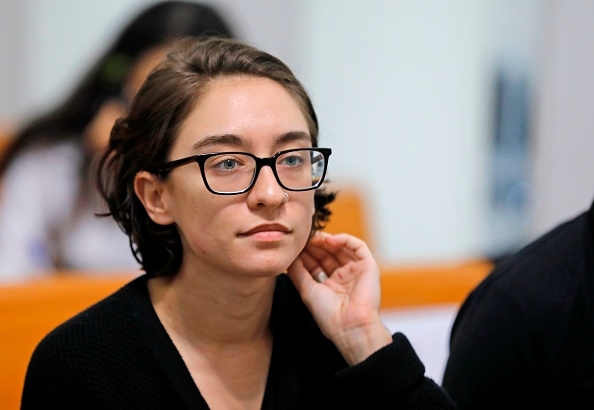You have /5 articles left.
Sign up for a free account or log in.

U.S. student Lara Alqasem at Israel Supreme Court hearing
Getty Images
It has been a rough few weeks for American students who wish to study in Israel. An opponent of the Israeli state refused to write a recommendation for a University of Michigan student who sought to study abroad in Israel, while a state agency of Israel, the Shin Bet, acting for Israel’s Ministry of Strategic Affairs, barred another American student from entering Israel to begin graduate study at Hebrew University. Now a graduate instructor at the University of Michigan has compounded the problem, similarly refusing to write for a student.
On the campus in Ann Arbor, John Cheney-Lippold, associate professor in the American culture department, changed his mind after first committing to write on behalf of student Abigail Ingber. Citing his endorsement of the boycott, divestment and sanctions (BDS) movement against Israel, he withdrew his commitment. Breaking sharply with normal understandings of faculty professionalism, he determined it was more germane to act on his own politics than to assess the student based on her merit and fitness for study. Cheney-Lippold’s action and accompanying rationale set off a firestorm of criticism and protest about such political misuse of faculty power, and subsequently the University of Michigan’s Senate Advisory Committee on University Affairs unanimously declared that merit ought to be the primary criterion faculty consider in deciding how and when to provide letters of recommendation.
Just a few weeks later, Lucy Peters, a graduate instructor at the university, similarly decided after first committing to write for Jake Secker of Great Neck, N.Y., to withhold her endorsement because of the BDS movement. Secker has brought his concern about such discriminatory action to Hillel, and Hillel has kicked it to the university’s Board of Regents; Secker has also met with an associate dean.
In Israel, Laura Alqasem, a graduate of the University of Florida, was detained and barred entry to Israel by members of the Shin Bet on behalf of the Ministry of Strategic Affairs, and was placed in a holding facility at Ben Gurion airport awaiting deportation. Israeli courts continued to wrestle with the action. Alqasem was president of Students for Justice in Palestine briefly at Florida, and now wished to do graduate studies at Hebrew University in Hebrew and to seek to obtain a master’s degree in human rights and transitional justice. The faculty member who taught her about Israel/Palestine at Florida, Tamir Sorek, encouraged her to go and strongly vouched for Alqasem’s open-mindedness and academic excellence. The Israeli consulate in Miami provided a student visa. The Ministry of Strategic Affairs, however, cited Alqasem’s "consistent activity against Israel, according to Amendment 28 to the Entry to Israel Law," which bars entry of foreign nationals who support or participate in boycotts of Israel.
Yet the Ministry of Strategic Affairs had told activists in the anti-boycott movement in the United States that the act would be applied only to the top national leaders of the boycott movement or central leaders in identified national organizations. Laura Alqasem was and is not a national leader in the boycott movement and was in effect breaking with the boycott to study at an Israeli university.
As executive director and chair, respectively, of the Academic Engagement Network, we lead a national faculty organization that takes academic freedom and free speech seriously. We believe in international exchange and robust conversation about difficult issues. We oppose efforts to challenge the legitimacy of the State of Israel, including the boycott movement, because they hold Israel to a double standard not applied to other nations, they stand emphatically against academic freedom and they often shun Jewish organizations and sponsor actions on campuses disrupting the speech of those they perceive as pro-Israel.
The recent actions involving students from the University of Michigan and the University of Florida have the effect of interfering with international student exchange and preventing students from engaging with others about the complexities of the Middle East. Faculty professionalism requires consideration of student merit as the guiding criterion in when and how to write letters of recommendation. With the Anti-Defamation League, we are working to prepare a suggested model policy urging universities to write this criterion into guidelines in their faculty handbooks.
And we believe the Ministry of Strategic Affairs, contrary to its early assurances, is engaged in an exclusionary policy that simply makes more difficult the work we do toward mobilizing American faculty to reject the views of those who seek to delegitimize the Jewish and democratic Israeli state. On Oct. 19, the Israeli Supreme Court agreed with us, ruling Lara Alqasem should be permitted entry because she no longer followed the BDS movement and the Ministry of Strategic Affairs failed to show that her BDS involvement was “active, continuous and substantial.”




